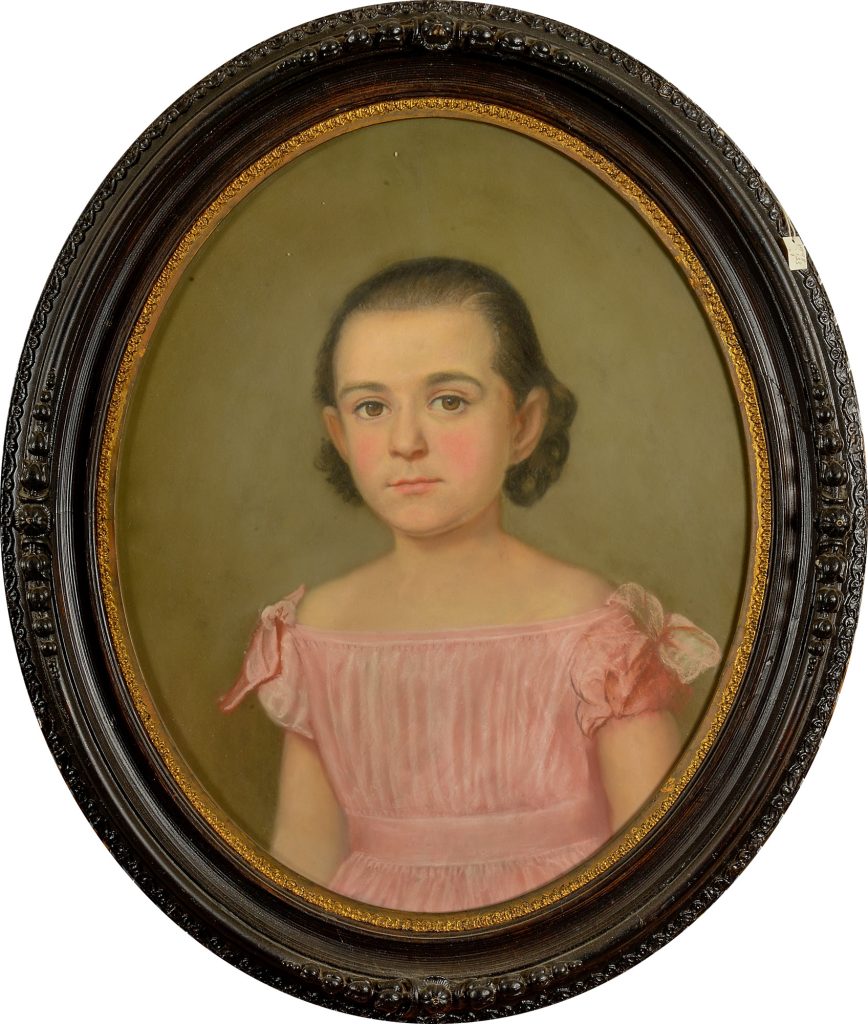Henrietta Szold, depicted here at age six—at the dusk of one era in the history of American Jews—would come to be one of the most prominent American Zionist leaders in the early decades of the twentieth century, marking the development of a subsequent era. She was the eldest of six children to survive infacny—all daughters—born to Benjamin Szold and Sophie Schaar, who had emigrated from Hungary the year before Henrietta’s birth. Her father, a rabbi, took a post a Baltimore’s Oheb Shalom, where he continued to preside until his death in 1902.
In 1877 she graduated from Western High School, a Baltimore girls school where she subsequently taught, serving as well as principal for the night school established by the Hebrew Literary Society. Though she had been publishing essays on a variety of subjects for some time, in 1893 she took a position as an editor and translator at the Jewish Publication Society, a job that brought her to Philadelphia.
Around the same time, Szold joined the Zionist Association of Baltimore, the first organized Zionist group in the United States and volunteered with the Federation of American Zionists (later the Zionist Organization of America), where she helped coordinate the activities of the organization’s education department.
In 1902, following the death of her father, Henrietta moved with her mother and youngest sister, Adele, to New York, where Henrietta pleaded with the president of the Jewish Theological Seminary, Solomon Schechter, to allow her to attended courses at the school, to which he agreed, provided she not seek ordination. It would be another eighty years before JTS ordained a woman.
Szold is best remembered for her critical role in founding Hadassah, the Women’s Zionist Organization of America in 1912. Hadassah’s original vision centered on bringing health services to Palestine, instituting an American style visiting-nurse program in Jerusalem. The organization, under her leadership, funded hospitals, a medical school, dental facilities, x-ray clinics, infant welfare stations, soup kitchens and other services for the Jewish and Arab inhabitants of Palestine.
In the 1920s and 1930s Szold supported of Brit Shalom, a small organization dedicated to Arab-Jewish unity and a bi-national solution. In 1942, she became a co-founder of the Ihud party, which advocated a similar program.
